This Post May Contain Affiliate Links. Please Read Our Disclosure Policy.
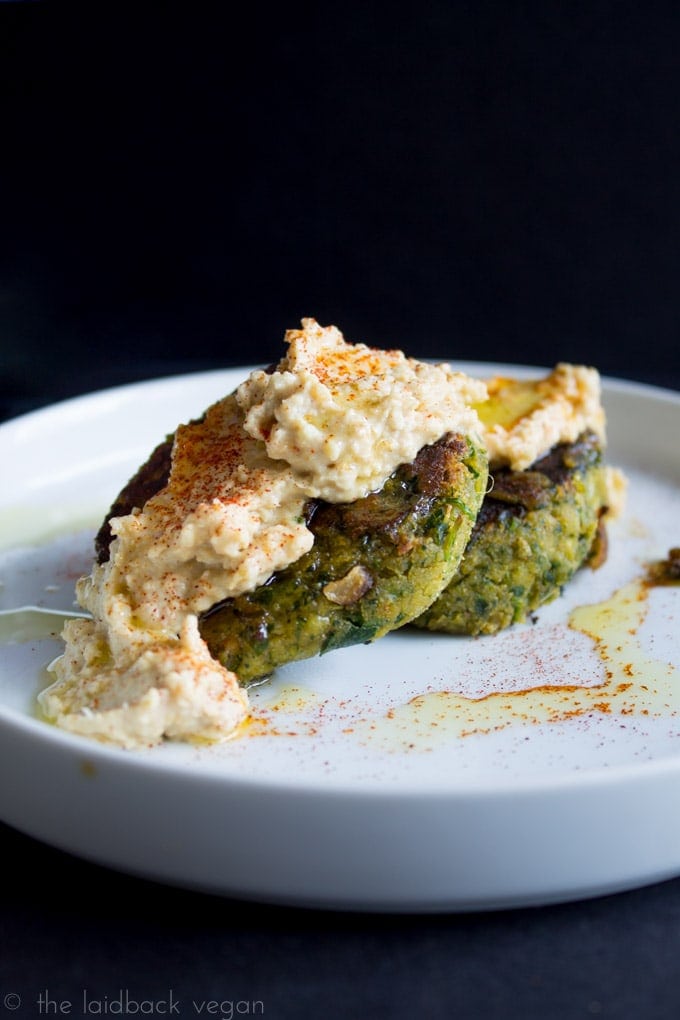
Falafel is one of the standbys in vegan life, an herby, meaty filling for pita or vessel for hummus or baba ganoush. I find myself often proffering Mediterranean restaurants at the dreaded “Where will you eat?” question, the askers insistent that I must be quite difficult to accommodate, though I tell them on repeat there’s only one place I know of in town where I cannot eat, and that they merely “dislike” dozens more themselves.
Unfortunately for vegans, though, there are some falafels that use egg as a binding agent, so it’s pretty necessary to ask specifically when you order, but most of the time, Mediterranean and Middle Eastern restaurants recognize the dish as one suitable for vegans. But you simply don’t need to go out and ask anymore. Why?
This. This right here. This magic.
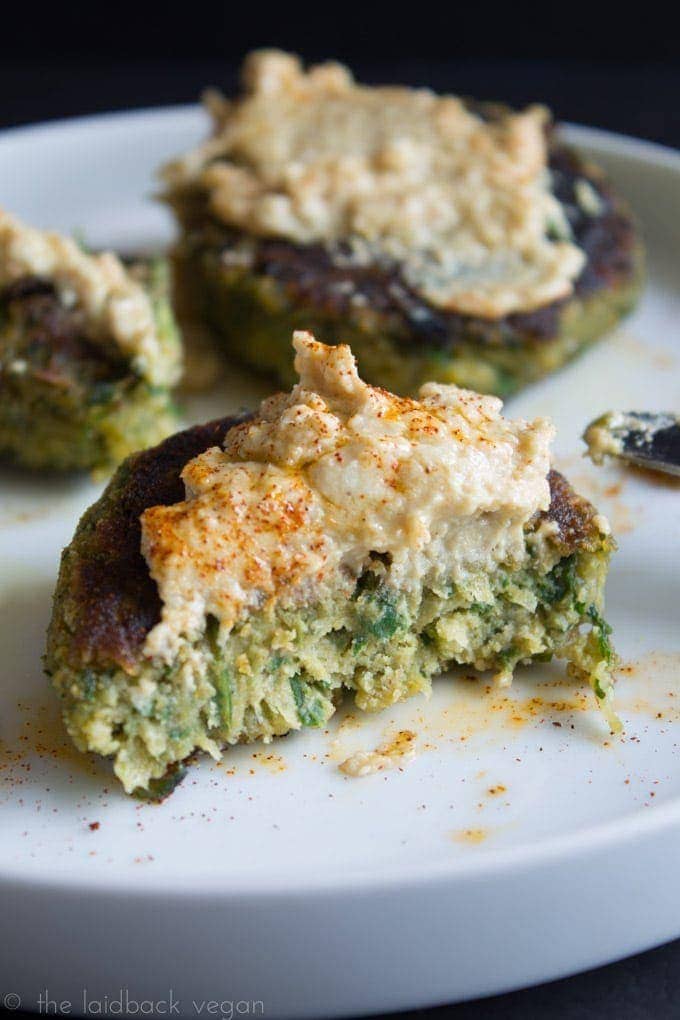
I’d always been intimidated by the prospect of making falafel at home, but fell in love with a beautiful recipe from Just a Taste and her step-by-step photos made the process seem completely doable. Often I cycle through several iterations of a recipe before settling on one, but this was love at first bite. The fresh herbs packed immense flavor, bright and fresh, while the chickpeas provide a bulk and nuttiness that’s to-die-for. Topped with some homemade hummus, and I’m 100% in heaven.
Most falafel in restaurants or on the street are deep-fried, vegan or no, and can turn what could have been a healthy, filling dish into an oily bite. These little discs are pan-fried and don’t need loads of oil, so you still get that crispy crust without submerging them completely in bubbling veg oil.
Perfect for a casual weeknight dinner or part of a massive Mediterranean feast.
Make these!
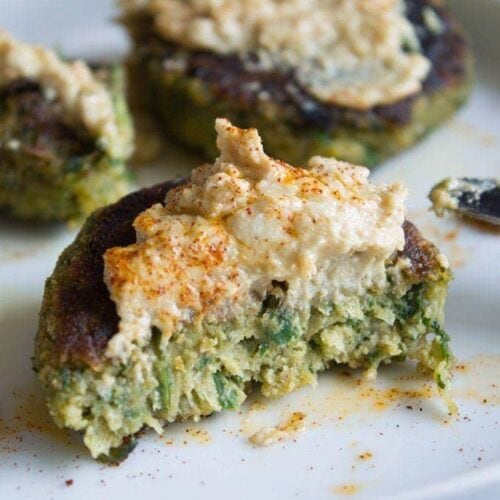
Vegan Falafel
Ingredients
- 1 cup roughly chopped white onion
- 3 cloves garlic
- 1 cup cooked chickpeas drained
- ½ cup lightly packed parsley leaves
- ½ cup lightly packed cilantro leaves
- ½ teaspoon salt
- ⅛ teaspoon chili powder
- 1 teaspoon cumin
- 1 teaspoons baking powder
- ¼ cup all-purpose flour 4 tablespoons, whole wheat, brown rice, chickpea flour, etc, or half-and-half mix of white flour and "whole" flour
- 2 tbsp Canola oil or olive oil for sauteing
- Pita bread for serving, optional
- Hummus for serving, optional
Instructions
- Add the onion and garlic cloves to the bowl of a food processor and pulse just until they are finely minced. Remove the mixture and set it aside.
- Add the chickpeas, parsley, cilantro, salt, chili powder, and cumin to the bowl of the food processor and pulse until they are roughly blended but not pureed.
- Return the onion mixture to the food processor, along with the baking powder and just enough flour so that when you pulse the processor, the mixture begins to form a small ball and is not sticky. (Note: Start by adding 2 tablespoons of flour, and then the remaining 2 tablespoons. You can add more if the mixture is still too wet.)
- Transfer the falafel mixture to a bowl, cover it with plastic wrap and refrigerate it for 1 hour.
- Once the falafel mixture has chilled, use a small ice cream scoop or spoons to form the mixture into balls (roughly 3 Tablespoons per ball). (Note: You can also add additional flour at this point, if the mixture is too wet to scoop.)
- Set a large sauté pan or cast-iron skillet over medium heat and add a liberal amount of canola oil so that the pan is well-coated. Let the pan pre-heat for 3 minutes then add the falafel one by one, browning them on the first side for 3 minutes, then flipping them once and browning the second side until the mixture is cooked throughout.
- Transfer the falafel to a paper towel-lined cooling wrack and immediately season them with salt. Repeat this process until you have cooked all of the falafel.
- Place three or four falafel inside a halved, warmed pita and slather with hummus or baba ganoush, or just eat unwrapped with hummus/baba ganoush!
Approximate Information for One Serving
Nutrition Disclaimers
Number of total servings shown is approximate. Actual number of servings will depend on your preferred portion sizes.
Nutritional values shown are general guidelines and reflect information for 1 serving using the ingredients listed, not including any optional ingredients. Actual macros may vary slightly depending on specific brands and types of ingredients used.
To determine the weight of one serving, prepare the recipe as instructed. Weigh the finished recipe, then divide the weight of the finished recipe (not including the weight of the container the food is in) by the desired number of servings. Result will be the weight of one serving.
Did You Make This Recipe?
Tag @40aprons on Instagram and be sure to leave a review on the blog post!
Never Miss A Meal!
New Recipes Straight To Your Inbox
A curated selection of our most recent recipes, delivered straight to your inbox once a week.
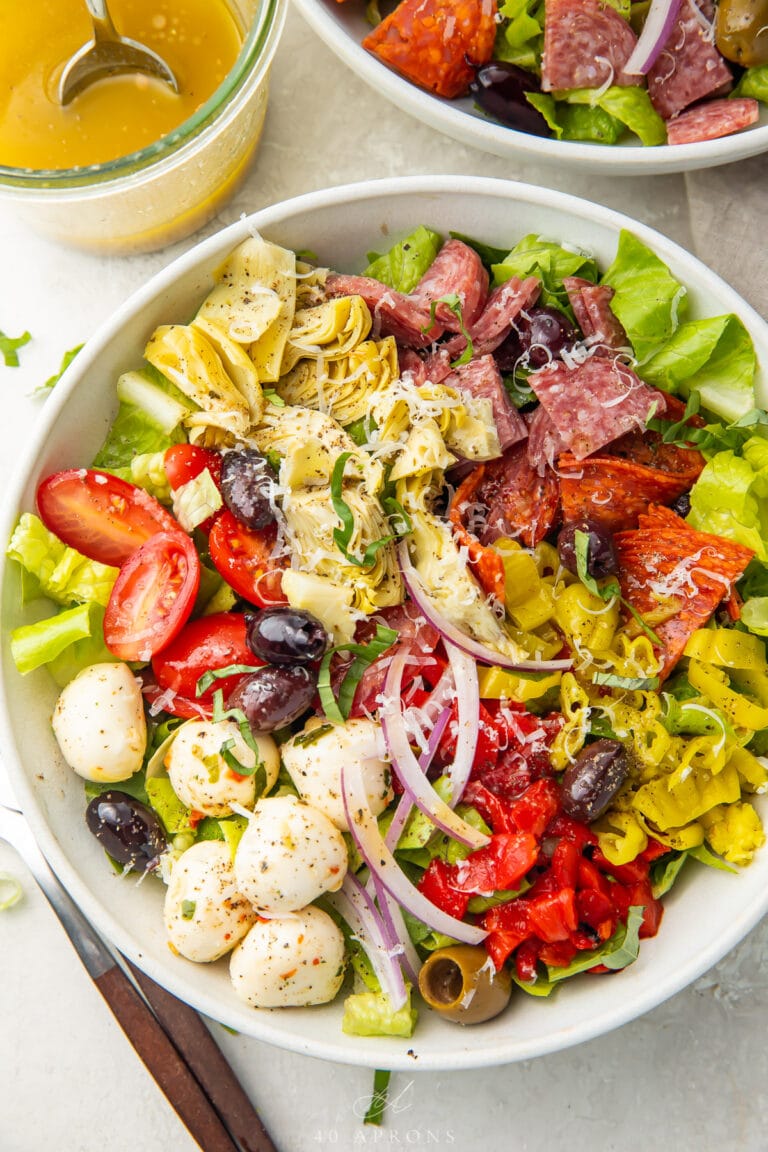
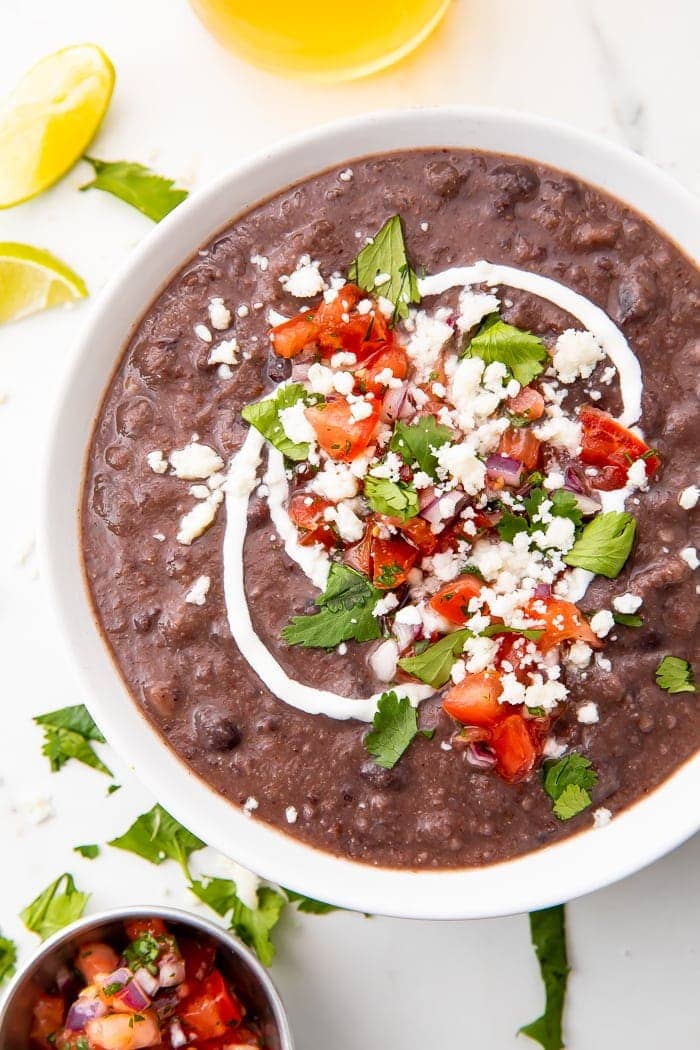
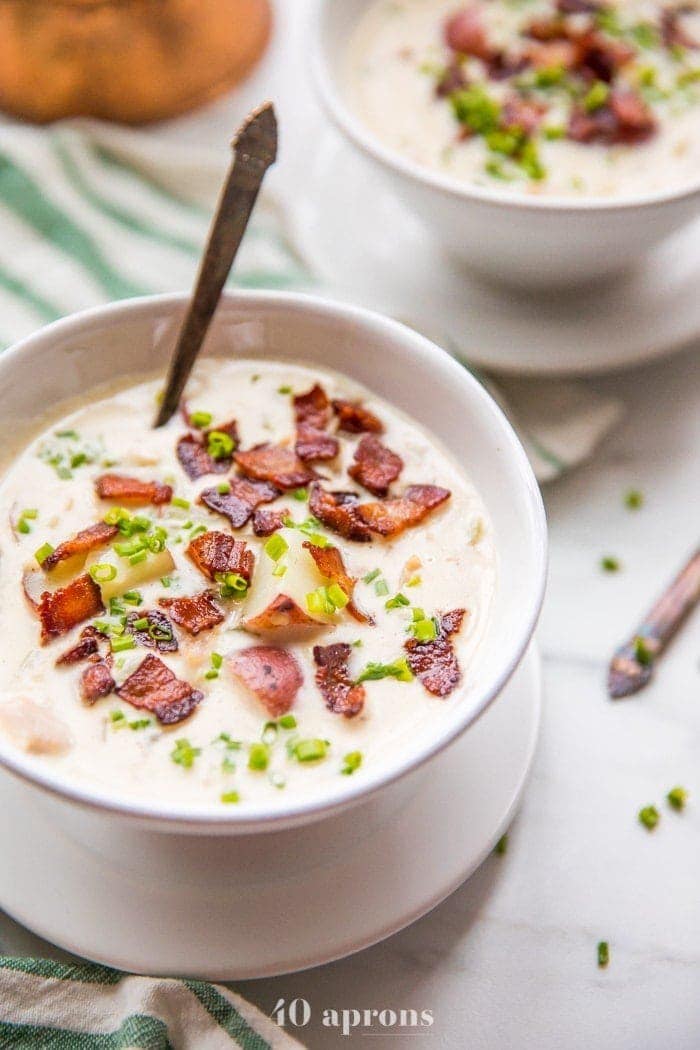
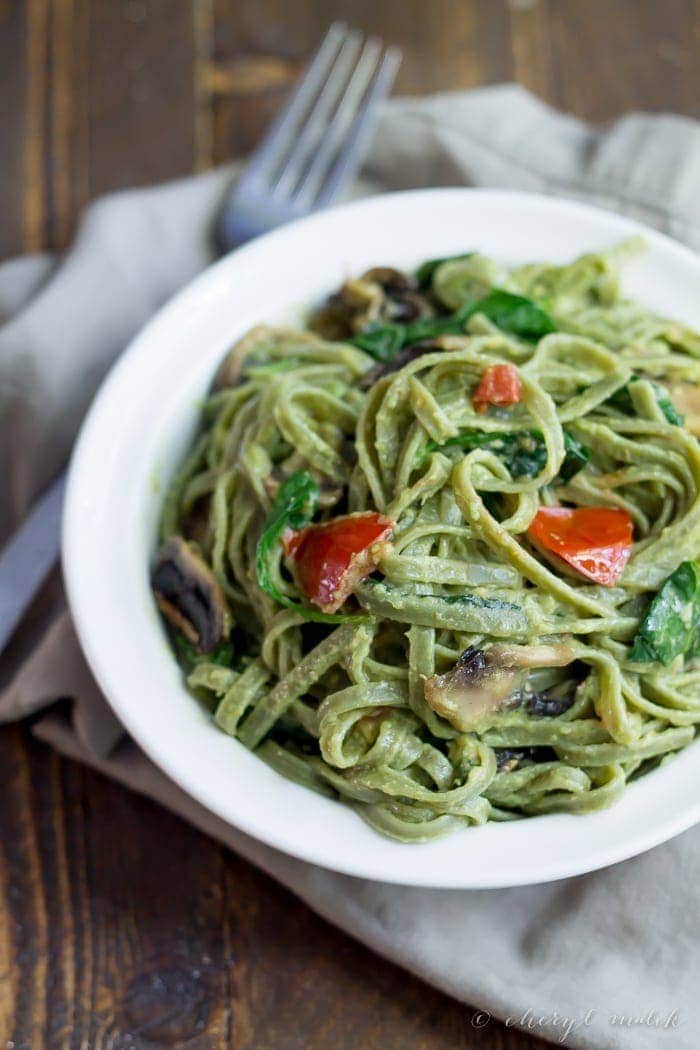
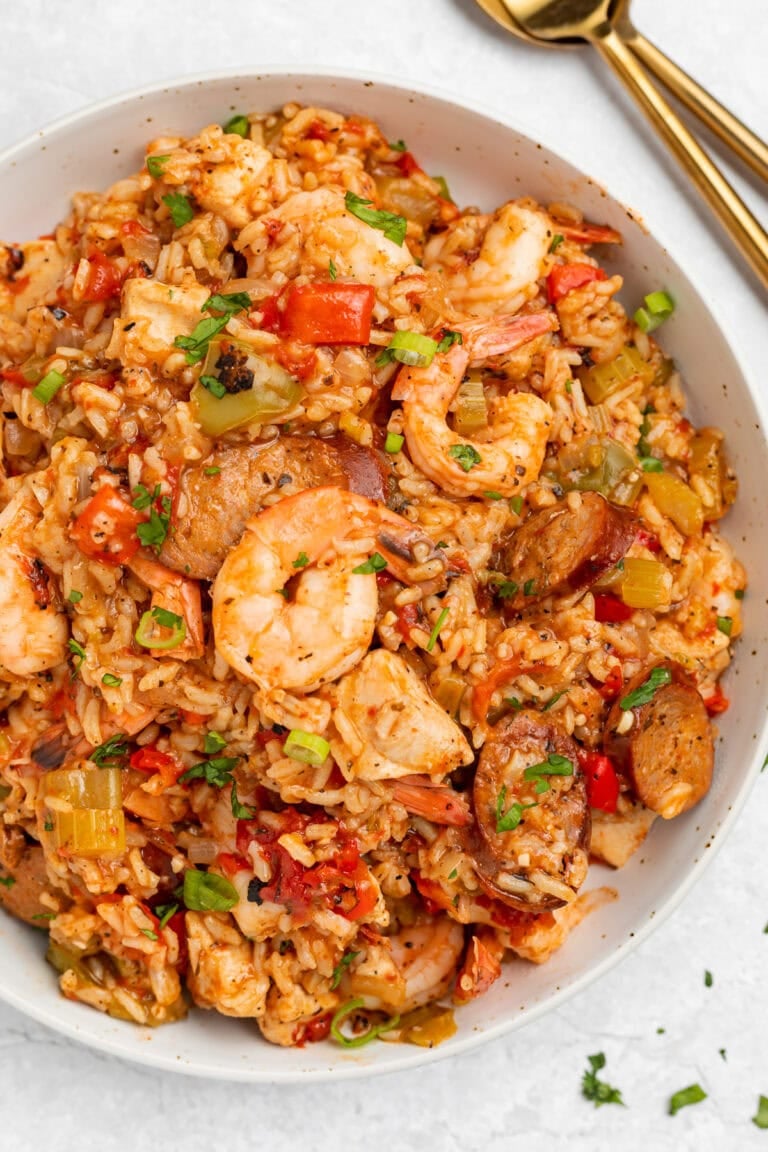
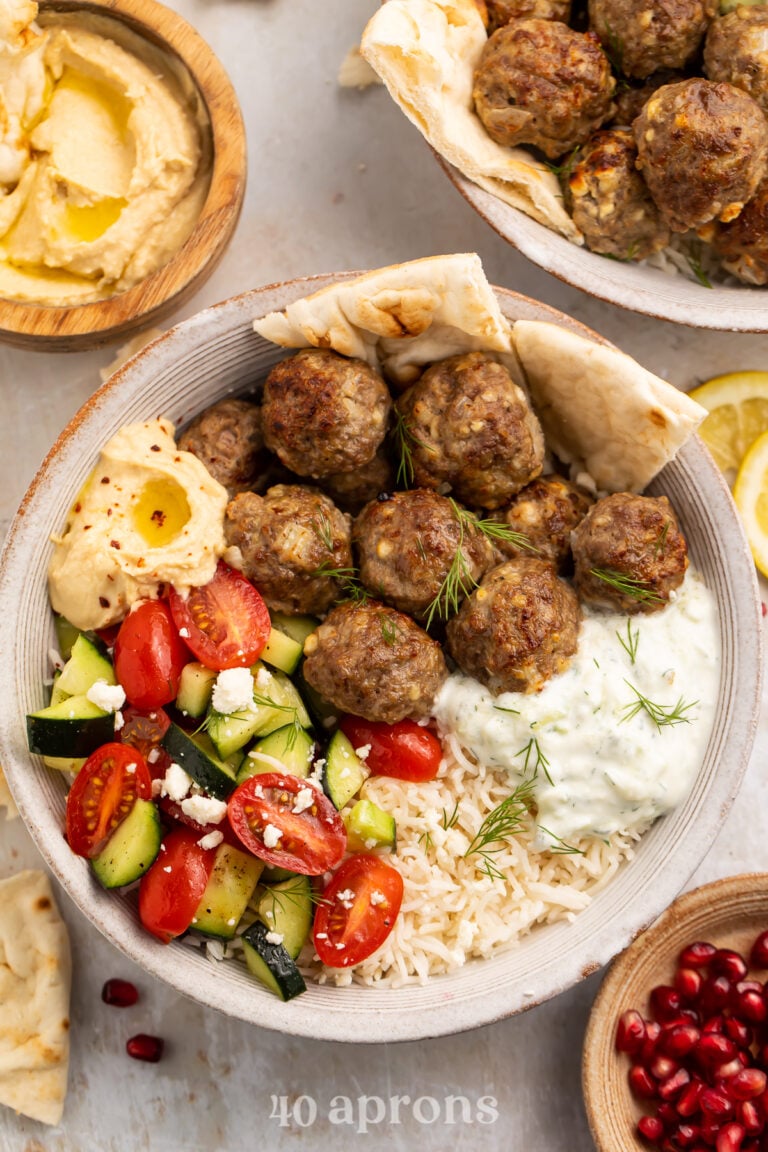










Oh I love this recipe! It looks fairly easy to make so I won’t mess it up haha great recipe, thank you!